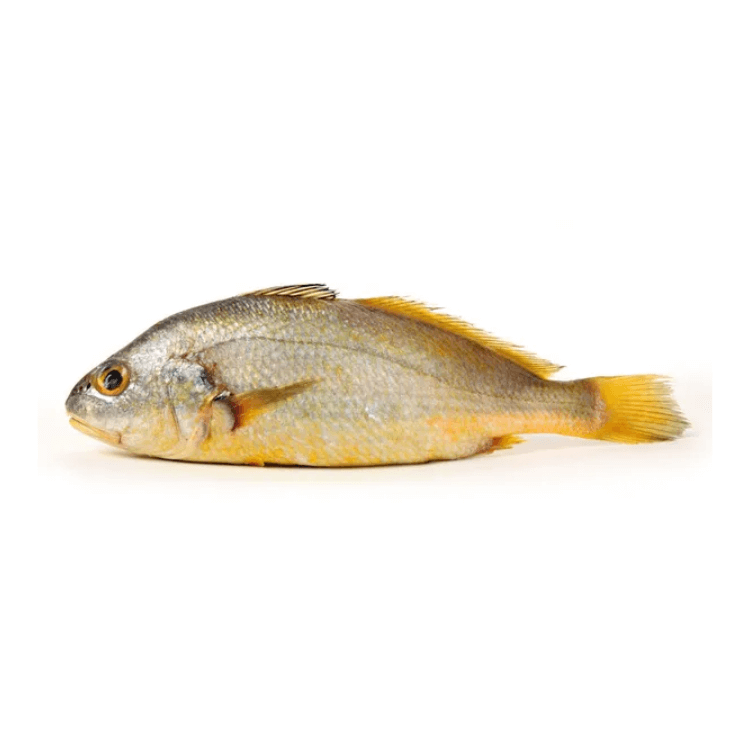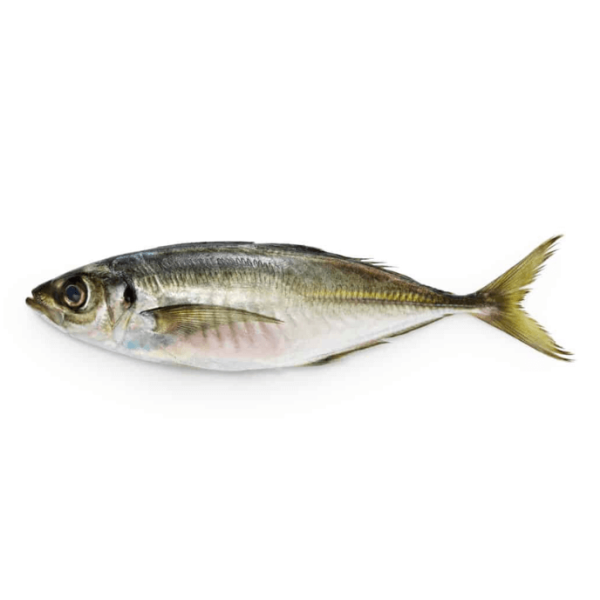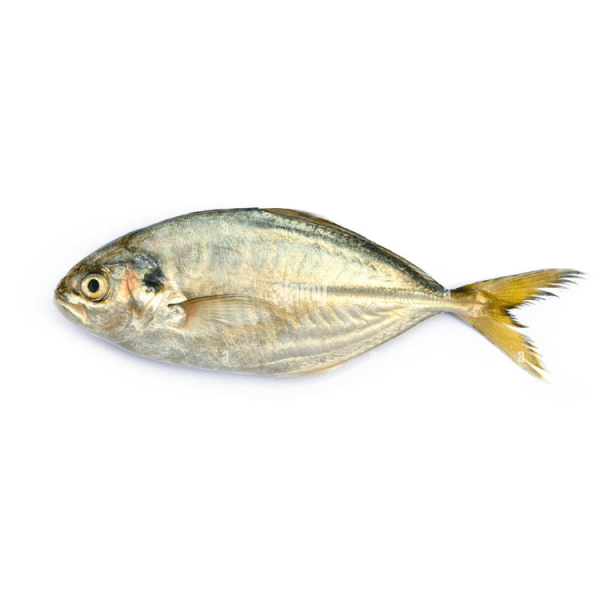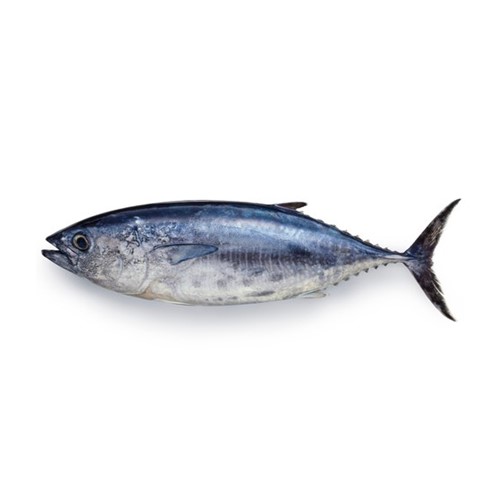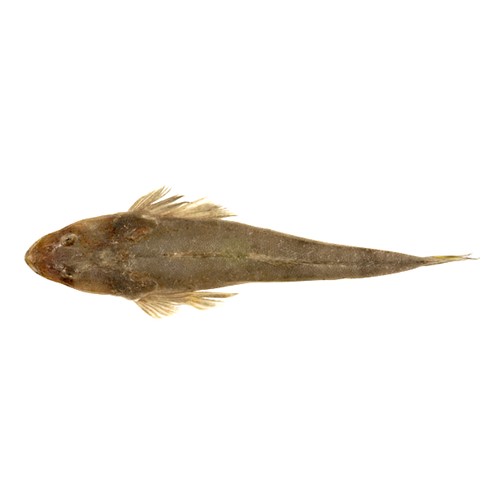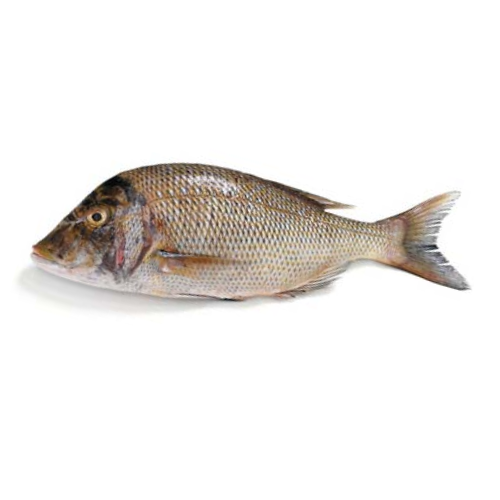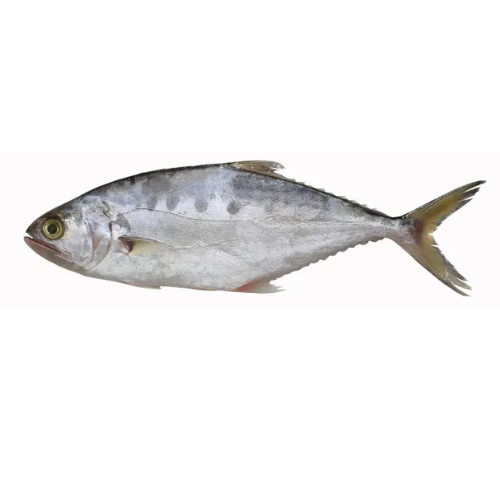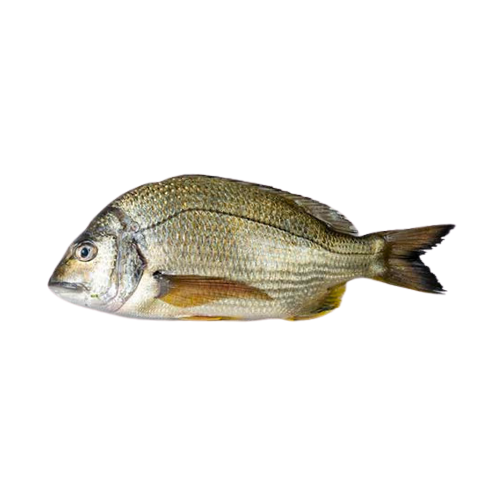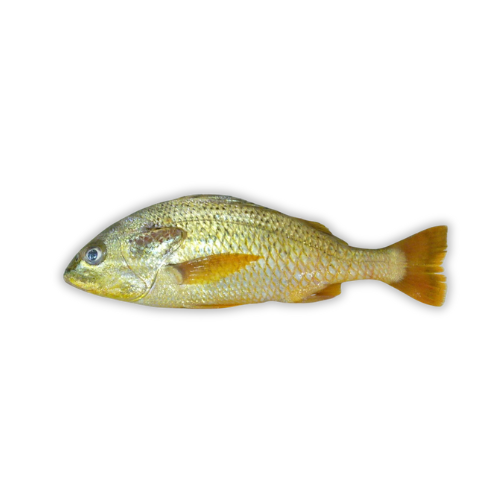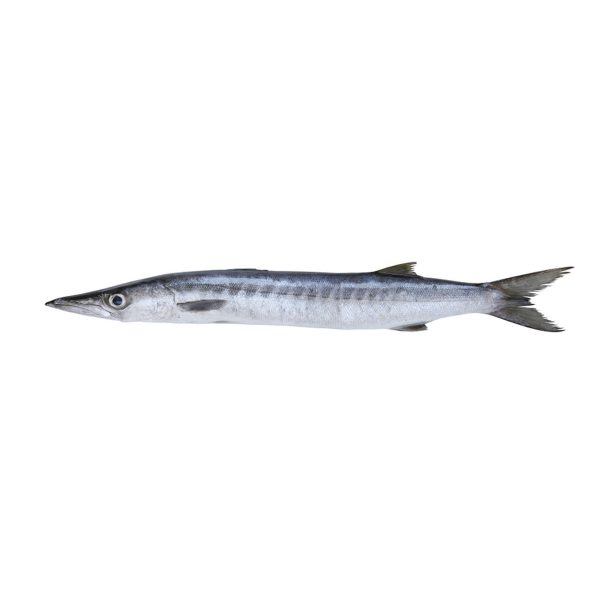Introduction
Bengal Corvina (Goli Mushka) stands out in the Pakistani fisheries due to its delicate flavor, tender texture, and versatility in culinary preparations. Its mild taste, nutrient-rich profile, and ability to absorb a variety of flavors make it a preferred choice in many cuisines.
With cultural significance in regions where it’s found, it holds a special place in local culinary traditions. Bengal Corvina’s sustainability and wide availability further distinguish it as a desirable and responsible seafood option. It’s not very abundant in the Arabian sea though and majority of the catch come from coastal areas of Sindh.
Flavor Profile
Bengal Corvina (Goli Mushka) is celebrated for its mild, delicate flavor and tender, flaky texture. Its taste profile is often described as sweet and clean, with a subtle oceanic note.
Its mild taste makes it a versatile fish for various culinary preparations, allowing it to absorb the flavors of spices, herbs, and seasonings.
This subtlety makes it a popular choice in local cuisine, where it can be grilled, fried, curried, or cooked in a variety of regional dishes, letting its inherent qualities shine while harmonizing with a range of flavors.
Nomenclature
English Name: Bengral Corvina, White Croaker
Local Name: Goli Mushka, Goli
Scientific Name: Atrobucca alcocki
Habitat
In Pakistan, the Bengal Corvina inhabits coastal and nearshore environments. It prefers areas with sandy or muddy seabeds, often found in estuaries, lagoons, and shallow coastal waters.
It tends to thrive in regions with moderate salinity levels and temperatures such as coastal areas of Sindh, making it well-suited to the Arabian Sea’s diverse coastal ecosystems. Its adaptable nature allows it to move between freshwater and marine environments, making it a common species in the nearshore habitats along the Pakistani coast.
Catching Method
In the Arabian Sea, particularly in Pakistan, Bengal Corvina (Goli Mushka) is caught using various fishing methods. These methods include bottom trawling, gillnetting, longlining, handlines, and occasionally traps or pots.
The selection of the method depends on factors like the target catch, location, and local fishing regulations. Sustainable fishing practices are essential to preserve White Croaker populations in the Arabian Sea.
Physical Attributes
Bengal Corvina (Goli Mushka) is a fish with a slender, elongated body, typically growing up to 30-40 centimeters in length. It has a silver-white coloration on its sides and belly, and its dorsal side is often grayish or yellowish. It features a small mouth with sharp teeth and a pointed snout.
It has a single dorsal fin with spines and soft rays and a forked tail fin. This species is known for its adaptability to various coastal environments and is sought after by anglers for its culinary qualities.
Size
The size range of Bengal Corvina can vary widely depending on factors such as species, age, habitat, and environmental conditions. Generally, it can weigh anywhere from a few 200 gm to 700 gm.
Cutting Preferences
Keeping in mind the average size of the Bengal Corvina, the preferable cuttings are whole/gutted or slices.
Approx. Cutting Yields
– Whole: 100% yield
– Gutted: 80% yield
– Headless and Gutted: 60% yield
– Slices: 55% yield
– Boneless: 34% yield
Cooking Preferences
In South Asia, Bengal Corvina is a prized seafood enjoyed in various culinary styles. It’s often prepared as spicy curries, marinated with regional spices and herbs. Grilling and frying are popular methods, preserving its tender texture and delicate flavor.
The fish is also used in traditional rice dishes like biryani, enhancing the dish’s taste. Its adaptability allows for diverse preparations that align with South Asian cuisine’s rich and aromatic flavors, making Bengal Corvina a favorite in the region’s seafood dishes.
Health Benefits
Bengal Corvina offers a plethora of health benefits. This species of fish is a rich source of high-quality protein, essential for muscle health and overall growth. It’s also abundant in heart-healthy omega-3 fatty acids, particularly EPA and DHA, which aid in reducing inflammation, improving cardiovascular function, and enhancing cognitive abilities.
Additionally, Bengal Corvina provides essential vitamins and minerals such as vitamin B12 for nerve health, selenium for antioxidant defense, and phosphorus for strong bones and teeth. Its lean nature makes it a nutritious, low-calorie option for maintaining a balanced diet and promoting overall well-being.




